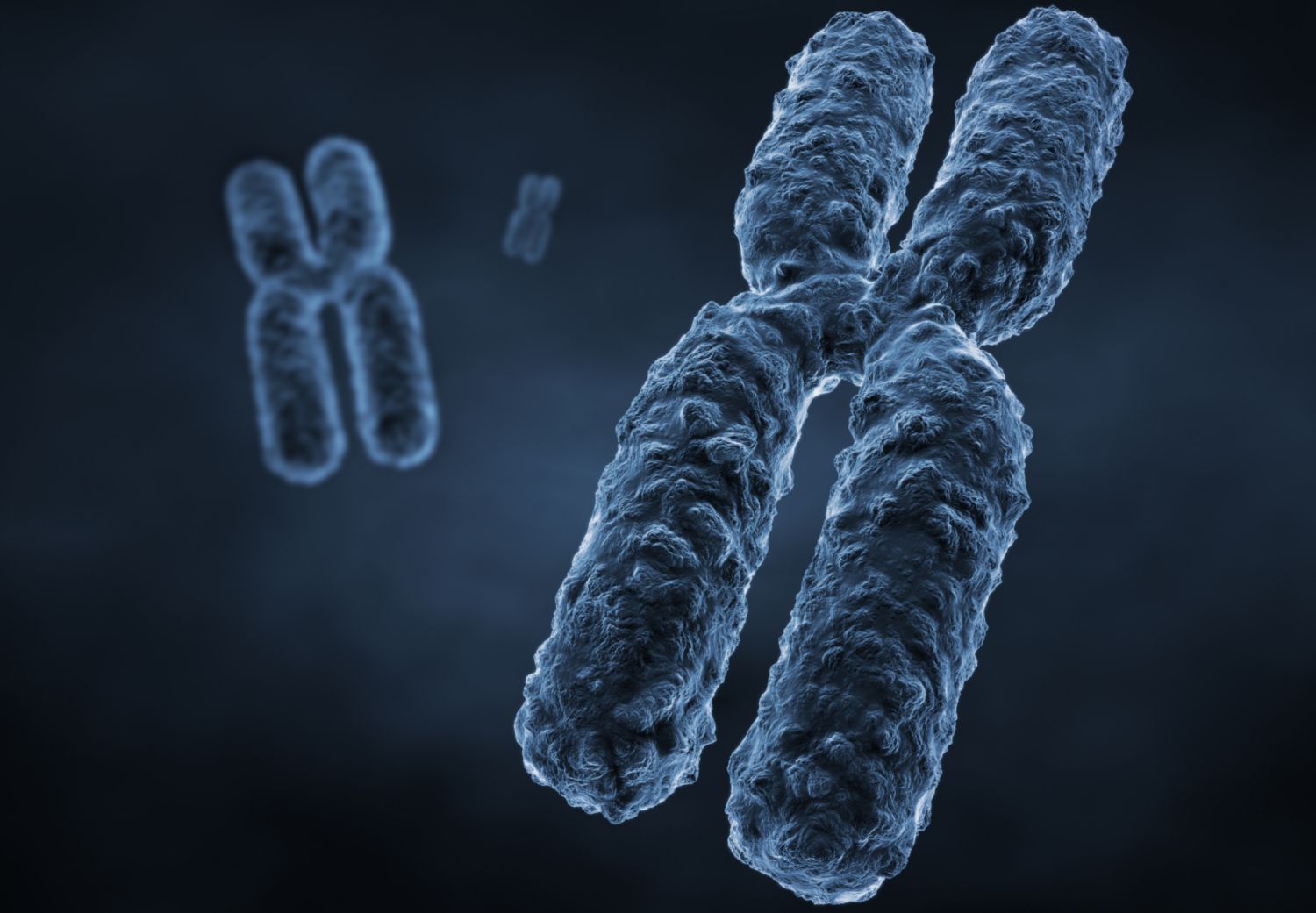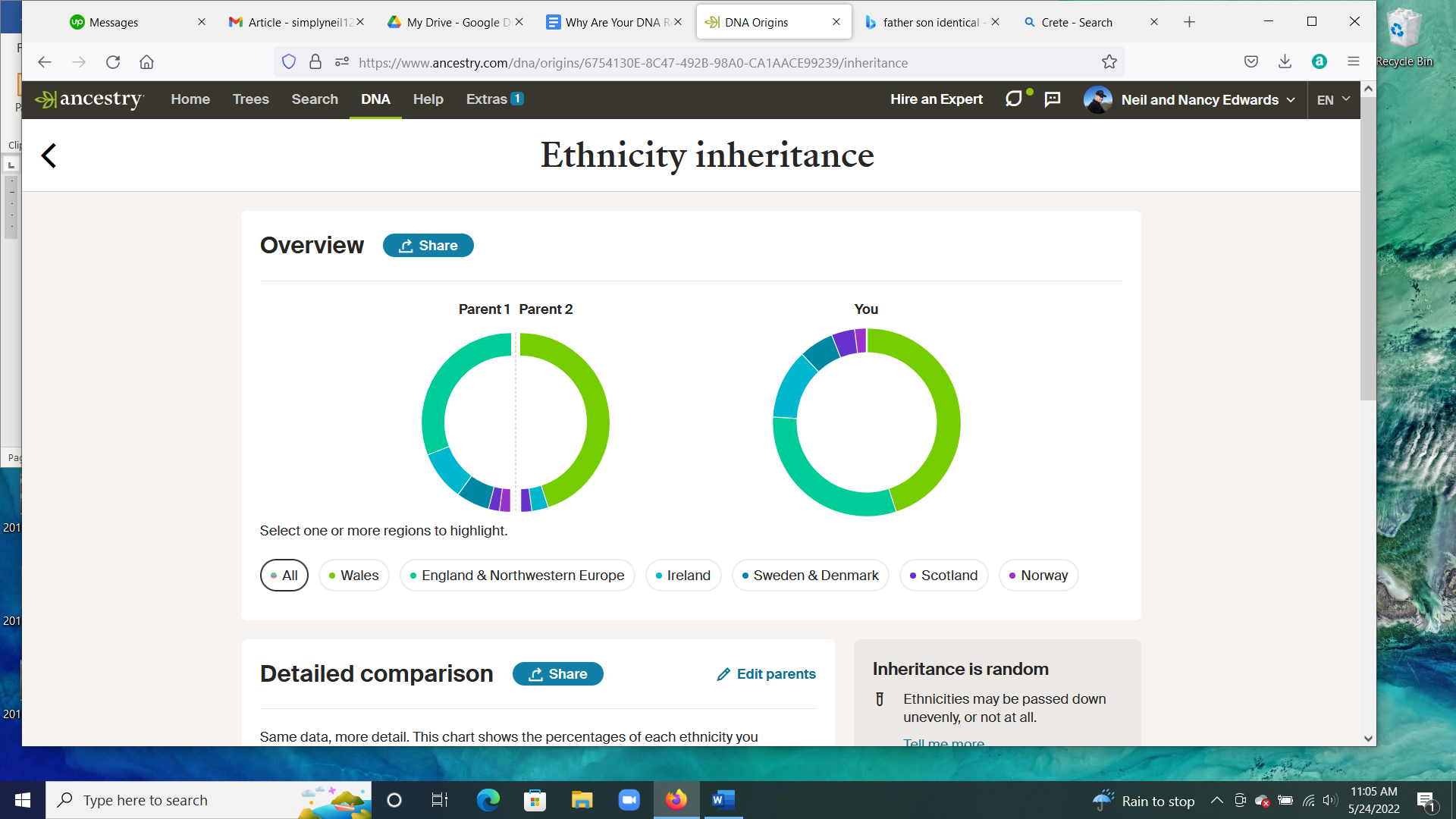Why Are Your DNA Results Different From Your Parents?
If you and both of your parents have all taken ethnicity tests through a site like AncestryDNA or 23andMe you will likely notice that your percentages are mostly different. This of course is not something to be concerned over as long as you show up as related to them both as their child.
Why then is there so much difference in your results? Well in this post we will go a little deeper into the nature of DNA and how it is passed down to us.
AncestryDNA is Our Top Recommendation
After reviewing all of the top DNA products on the market, nothing comes close to AncestryDNA to help you discover your whole family story!
They give you so much more than any other family tree DNA kit, and let you connect to the places you're from in the world where your family story started, and even help you to discover living relatives you never knew you had!
For the most accurate family history research based on your DNA, sign up for AncestryDNA now!
Get AncestryDNA →Why Are Our DNA Results Different from Our Parents'?
When it comes to DNA, unless we are literally a clone of one of our parents which at present to my knowledge is not something done in humans, then we would never 100% match a single parent's DNA. As the child of two biological parents we inherit roughly 50% of our DNA from each of them.
The DNA we received from our parents is randomly selected and combined together in a process known as recombination. As this process is random this means that we are not identical to our siblings unless they are literally an identical twin.
Our non-identical twin siblings would receive a different selection of DNA from our respective parents. You would still share DNA but just not as much as you would with a twin or your parents.
Every human has two copies of 22 numbered chromosomes. During the recombination process, random segments of DNA from our parents' 22 numbered chromosomes combine together. This creates a completely unique set of chromosomes that become the basis for us.

What Is Tested in an Ethnicity Report?
Found within each of 22 numbered chromosomes is a type of DNA that is known as autosomal. It is this type of DNA that many testing sites use to determine their ethnicity estimates. They compare this DNA to samples from around the world.
When these comparisons show significant segments of DNA that match the population of a specific geographical region then it is assessed that we may have heritage from that region. The more DNA that matches a specific region the higher percentage we get assigned in the ethnicity estimate.
As we have received half of our autosomal DNA from each of our parents the results of an ethnicity test will be different. If a parent is perhaps 50% German we may only inherit 25% of the German region DNA that they have.
Small amounts of regional DNA, such as 5% Swedish, in one parent may not be inherited by us at all. Although if a sibling is tested they may have some or all of this DNA in their estimate. It truly is a random process.
What if I Look Just Like One of My Parents?
Some people literally look just like one parent or the other sometimes and it can be very striking. This does not mean that you received more DNA from that parent because quite simply that is not how it works.

We simply look more like one parent than the other because the DNA we receive from that parent happens to influence our physical appearance more than the other. Recombination in DNA as mentioned is very random.
What Do We Inherit from Our Parents?
As mentioned we get 50% of our autosomal DNA from each of our parents. This is the DNA that makes up our 22 numbered chromosomes. There are however two sex chromosomes which are inherited differently than autosomal DNA.
If you are female then you only have one type of chromosome, which is known as an X chromosome. Each human has two sex chromosomes and women have two of the X variety. Women receive one of these X chromosomes unchanged from each of their parents.
Males only have one X chromosome which they inherit from their mothers. The other chromosome in males is known as the Y chromosome. This they receive from their father which is almost completely unchanged from the Y Chromosome that his dad received from his own father.
So essentially while the 22 numbered chromosomes are each a recombination of both our parents we do all have 2 sex chromosomes that we inherit unchanged from our respective parents.
Do You Get More Ethnicity from a Specific Parent?
As mentioned, the DNA that is tested for ethnicity estimates is our autosomal DNA. As it is connected to those 22 numbered chromosomes which we get in equal amounts from our respective parents then our ethnicity comes equally from both of them.

We do need to consider one point here before we move on. Ethnicity is not necessarily DNA dependent because it is more tied to cultural and societal identity than the makeup of our chromosomes. What our ethnicity estimates are really saying is that our ancestors came from a specific geographical area or may have connections to a specific ethnic region.
Can I Have More of an Ethnicity Type than My Parents?
The answer to this question is that you absolutely can have a higher ethnicity estimate for a region than one of your parents. This does however require that you received DNA for that region from both your parents.
As an example, if your father is 12% Swedish and your mother is 6% Swedish you might inherit all of those segments from your parents. Your result could potentially show up to 18% Swedish. Genetically you would have more markers for Swedish DNA than either parent solely because you inherited it from both.
What if You Have Ethnicity that Neither Parent Has?
On occasion people have found that they have small amounts of DNA that appear to be from a region that neither of their parents show results for. Assuming they have both tested at the same company as you and they are confirmed as your parents in that respect how can this be?
The answer is simple and these DNA sites cover their backs when they call these results an ethnicity estimate. Technology is always advancing and the results are getting more accurate by the year but they are still only estimates.
If you are showing a small percentage of an ethnic region not found in your parents results this is most likely just a random coincidence. The testing companies look at how our DNA is arranged. If it is arranged in a certain pattern matching that found in certain areas of the world then they estimate it may come from there.
Sometimes though DNA will recombine to look a certain way but may not have been inherited in configuration. So essentially it may look like for example 2% Iberian Peninsula but it is just how recombination randomly made it.
Can Ethnicity Skip a Generation?
You may have heard an older family member quip that a family trait such as nose shape might skip a generation. This may be accurate but it does not mean that the DNA that dictates that nose shape was not present throughout.
You may have grandpa's nose shape while your parent, their child, does not. The DNA for this physical trait is still within your parent however or it would not have been transferred to you. This is the same as ethnicity.
You simply cannot have DNA from a grandparent that was not present within their child, your parent. So if grandad is Irish he would pass Irish region DNA to his child who would then transfer that to you.
Conclusion
Our ethnicity estimates will almost always be noticeably different to that of our parents. We receive half of our autosomal DNA from each of them. Even if our parents had the exact same ethnicity estimate numbers it is likely ours would differ at least slightly from them individually.
This is not to say it could never happen because as mentioned DNA is random. If both parents had exactly the same ethnicity estimates as each other the DNA we inherit could be in exactly those same proportions. It would be highly unlikely but not impossible.
Link To or Reference This Page
We spent a lot of time downloading, cleaning, merging, and formatting the data that is shown on the site.
If you found the data or information on this page useful in your research, please use the tool below to properly cite or reference Name Census as the source. We appreciate your support!
-
<a href="https://namecensus.com/blog/why-are-your-dna-results-different-from-your-parents/">Why Are Your DNA Results Different From Your Parents?</a>
-
"Why Are Your DNA Results Different From Your Parents?". NameCensus.com. Accessed on April 25, 2024. https://namecensus.com/blog/why-are-your-dna-results-different-from-your-parents/.
-
"Why Are Your DNA Results Different From Your Parents?". NameCensus.com, https://namecensus.com/blog/why-are-your-dna-results-different-from-your-parents/. Accessed 25 April, 2024
-
Why Are Your DNA Results Different From Your Parents?. NameCensus.com. Retrieved from https://namecensus.com/blog/why-are-your-dna-results-different-from-your-parents/.
